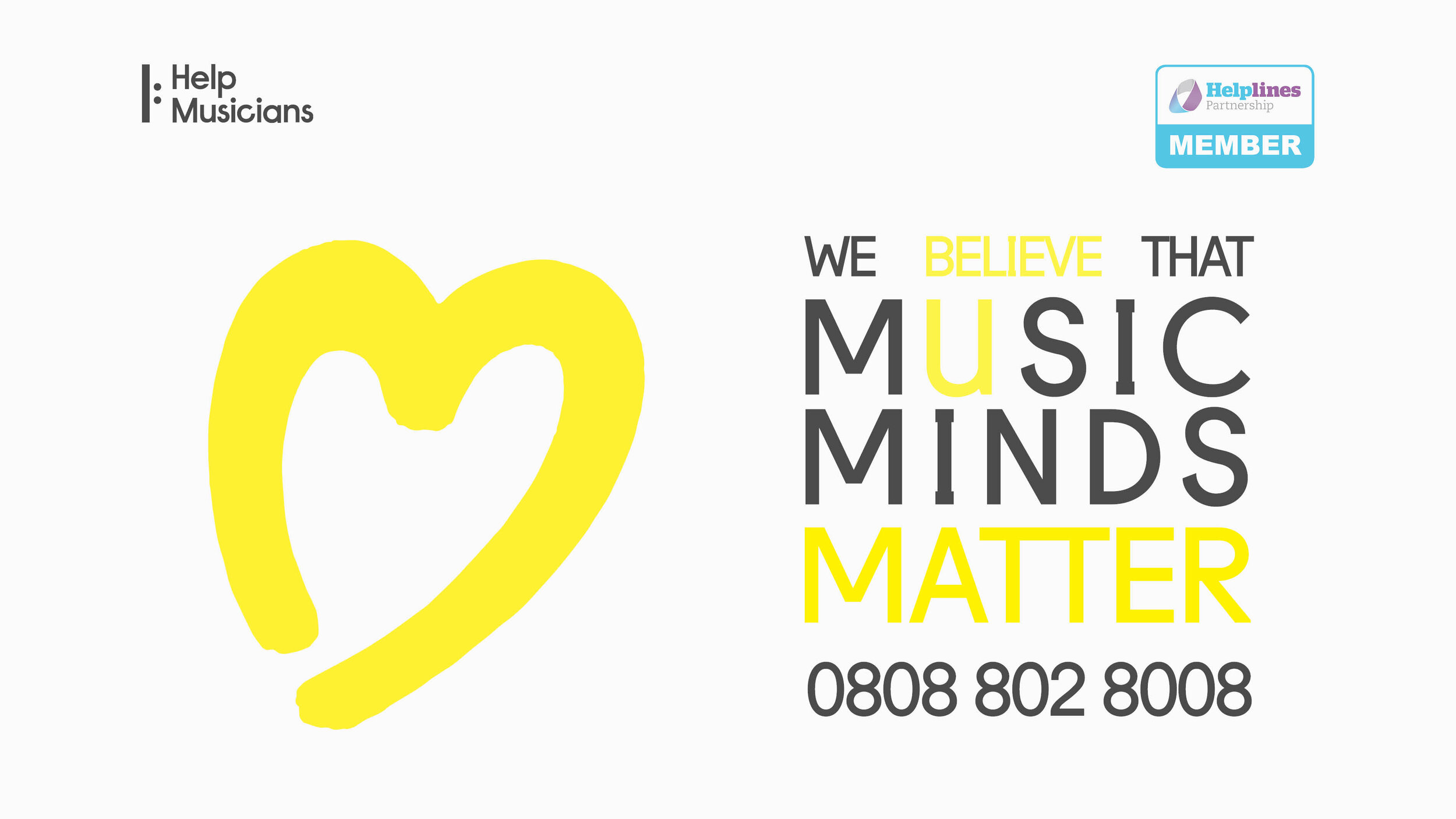Mental health crisis as 9 in 10 professional musicians in the UK report struggling in the pandemic
Image Credit: Music Minds Matter
90% of respondents to a survey by Help Musicians say their mental health has suffered over the past year with the impact of the coronavirus pandemic.
Uncertainty about the future, worry about the impact of Brexit, and the effect of the coronavirus pandemic are impacting hugely on the mental health of UK musicians.
A study by the Help Musicians charity reveals the distressing extent of the damage done to musician’s mental health over the past year. Professional musicians have described feelings of powerlessness and hopelessness since March 2020 when work instantly dropped away as coronavirus restrictions shut down their industry almost completely.
A survey of 700 professional musicians resulted in troubling statistics. 87% of participants said their mental health has deteriorated since the onset of the pandemic.
Help Musicians offers funding support and advice for musicians, and the charity leapt into action last year to increase its counselling and support measures in response to the pandemic. The Music Minds Matter support line offers a supportive ear for musicians whatever the cause. If musicians struggle to voice their worries aloud, Help Musicians is currently offering free access to the Thrive app, for one-to-one sessions to help users identify and manage mental health problems like anxiety.
The lack of paid work over the past year has had an obvious impact on the finance of musicians, and more than half who took part in Help Musicians’ survey stated they now have to rely on Universal Credit to get by. Out of the musicians who took part, only 4% said they weren’t worried about money. 7 out of 10 said they weren’t sure they’d be able to cope financially over the next six months.
It’s not just the pandemic weighing on musician’s minds, with 59% noting that they were worried by uncertainty over Brexit deals and how the future for the arts will look outside of the EU. There’s ongoing confusion and consternation as the government has not guaranteed visa-free travel for UK musicians touring the EU.
James Ainscough, chief executive of Help Musicians, said: “We can’t sugar-coat these findings. We are facing a mental health crisis amongst musicians on an unprecedented scale. There is still substantial uncertainty around how quickly the music industry can recover, plus the catastrophic impact of the Brexit deal on musicians’ ability to tour. After a year of hardship, the ongoing uncertainty for musicians is taking a huge toll on mental health.
“We have been offering ongoing financial support to thousands of musicians throughout the pandemic, but offering money is just one part of what musicians need – we have also had to completely revamp the mental health support we offer to address this rapidly unfolding crisis.
“Musicians who cannot work don’t just suffer financially, they grieve for the creativity and connections that their music usually brings. This is why we have bolstered our mental health support for musicians across the UK.”
The survey revealed that 91% of musicians agree a lack of certainty about the future has had a negative effect on their mental health, and a heartbreaking 24% were considering giving up the profession for good after weighing up the effects of the past year.
Even before the pandemic, musicians were disproportionately susceptible to mental health problems, with the unpredictable nature of the profession and irregular income being a factor, as well as the pressures of constantly performing. Back in 2016 a survey by Help Musicians discovered that 71% of respondents had experienced anxiety and panic attacks, and 68% had experienced depression.
A positive note is that with the UK government’s roadmap out of lockdown showing the beginnings of a way out of pandemic restrictions, brighter days for musicians are coming.
Music Minds Matter Helpline: 0808 802 8008
